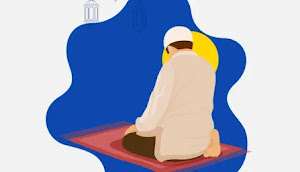
JAKARTA - Because of the dynamic development of some sectors within the ‘traditionalist’ pesantren community over the past three decades, the NU has attracted substantial outside scholarly attention in recent years. This represents a significant shift from the situation prior to that when the NU was of little interest to most foreign observers.
Writing in 1985, Francois Raillon remarked on the unusual scholarly work of Allan Samson at that time, whom he characterizes as arguing “that Western scholars only know NU through the unfavorable views of reformist Muslims. So far NU has failed to correct this negative image, and it still has little communication with non-Muslims.
Shortly thereafter, however, a dramatic sea-change occurred as the NU became not only more deeply involved with foreign NGOs, but also the subject of the work of a number of international scholars who formed strong ties with many of those involved in the organization’s pesantren as well as its politics.
In a paper recently presented at Singapore, Greg Fealy has critiqued this trend (and even his own involvement in it), cautioning that it has resulted in a tendency for observers to overlook developments in other sectors of the IndonesianMuslim community, including the Muhammadiyah.
Doing so would be a considerable oversight in a treatment of contemporary Indonesian Islamic thought, as over the past few years internal movements for the reform of Muhammadiyah have also made significant contributions toward the revitalization of Islamic intellectualism in contemporary Indonesia.
At the forefront of this has been a group of young thinkers and activists, many of whom have come through the IAIN and have thus been exposed to a broad range of ideas on Pembaharuan, contextualization, and Fiqih Sosial in their studies of Islam. While they remain a somewhat marginal constituency of the Muhammadiyah at large, their work has found support from various sectors within the organization, and particularly in the grass-roots activist circles associated with Moeslim Abdurrahman.
In his 1995 book entitled Islam Transformatif Abdurrahman voiced a critique of the current state of the Muhammadiyah and called for a reorientation of the movement in order to more responsibly fulfill its founding mandate for religious revival and social transformation.
In the essays published there, he rebuked the organization for directing overwhelming attention to the modernist obsessions with ‘peripheral matters’ such as the audible pronunciation of niyya, and the permissibility of men and women shaking hands.
Beyond this, however, he also challenged what he considered to be the elitist nature of Islamic modernism as well as the tendencies toward the ideologization and politicization of Islam that he sees as having led to the spread of reactionary conservatism within ‘modern reformist’ organizations such as Muhammadiyah.
In looking for ways to overcome these problems, Abdurrahman drew inspiration from the work of critical Muhammadiyah scholar Kuntowijoyo (d. 2005) in seeking a new, ‘profetis’ format for the social sciences that could be put into the service of ethical endeavors for the improvement of society.
This, Abdurrahman argues, would require cooperative efforts with preachers, `ulama, and social scientists to transform the umma through the application of new, socially engaged ideas on religion and society. To further their work of “collective ijtihad ” he calls for the establishment of a new center for the study of Islam, complete with an information center and library facilities for documentation.
He has since begun some work in that direction himself on a modest scale in a converted house that now serves as the headquarters for a group calling themselves the Young Muhammadiyah Intellectual Network (Jaringan Intelektual Muhammadiyah Muda/ JIMM).
Abdurrahman has become a kind of mentor for younger thinkers and activists associated with JIMM intent on transforming theMuhammadiyah from within with an emphasis on social engagement.
In describing the project of JIMM in the preface to a collection of essays produced by its members, he has highlighted what he sees as three major characteristics: (1) a new openness of approach to hermeneutics; (2) an emphasis on ‘liberation’ and ‘resistance to hegemony’ and (3) a sense of practical engagement with “the New Social Movement.
78 Despite such over-arching characterizations, however, JIMM itself is internally diverse, some of its members have even come to it from out of NU backgrounds.Most of those affiliated with the movement share an intellectually imaginative orientation toward Islam and an affinity for grass-roots social activism.
They pursue these interests through an array of overlapping methods ranging from forms of social critique building upon the work of Gramsci, as well as that of Roman Catholic liberation theologians, to new models of scriptural exegesis and a critical re-evaluation of the ways in which conceptions of gender are operative within the ideals and institutions of Muhammadiyah.
In ways that, in their rhetorical form, reflect concerns within the NU to create a model of Post-traditionalism, the young activists associated with JIMM call for the development of a Post-Puritan vision for the Muhammadiyah.
For example, Abd. Rohim Ghazali and Zakiyuddin Baidhawy have called for a reappraisal of Muhammadiyah’s fundamental concern with what its adherents commonly refer to as ‘TBC’ (Takhayul, Bid`ah, and Churafat).
Rather than seeing the real targets of reform as these ‘imaginations, innovations, and superstitions (respectively)’ in religious beliefs and practices, the thinkers and activists associated with JIMM argue for a new, religiously based critique of such ‘idolatrous’ dangers to the community as “corruption, nepotism, and the cult of individualism.
Thus in place of whatMoeslim Abdurrahman has critiqued as a stultified emphasis on da`wa as a form of ‘propaganda’ JIMM directs its work toward the development of what have come to be referred to as ‘alternative cultural da`wa’ strategies that are both ‘new’ and at the same time true to their understandings of the “original, dynamic vision of Muhammadiyah” put forward by the organization’s founder K. H. Ahmad Dahlan.***
Retrieved from: Feener, R. Michael. 2007. Muslim legal thought in modern Indonesia. Cambridge: Cambridge University Press. pp: 204-10.




















